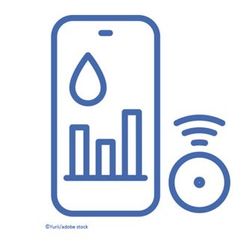Empowering Early Intervention: Navigating Treatments for Delaying T1D Progression, Insights from Pediatric Endocrinology of North Texas - Episode 10
Final Thoughts on Strategies for Managing and Monitoring Patients Receiving Teplizumab
The panel concludes its discussion with key takeaways on the optimal care of patients with type 1 diabetes care and thoughts on unmet needs within the treatment space.
The following is a summary of the video transcript and has been edited for length and clarity.
Goldman: Would you share what you feel are the most important take-aways for you from the conversation today?
Shenkman: I think that the biggest thing that I would take away from our discussion is the need for more education on and awareness of screening for type 1 diabetes. And that needs to happen at a systemic level. We should be screening in pediatrician's offices and PCP offices because without screening, we can't do anything.
Burton: As a subspecialist, I know that we're all booked out for 6 months, but this is what I tell all our pediatricians in the community or the FPs that refer to me. I think screening is important and we appreciate you all screening and being the front lines for us. Find an endocrinologist in your community and just ask if you have questions. A text I received from a pediatrician said, "I have a sister of one of my kids with type 1 and she has 1 positive antibody. When should I screen again?" I don't expect you to remember all the screening guidelines. So that's what we're here for. I may not be able to see every single one, but I can navigate until the child can be seen by endocrinology. I give them a protocol. So what I would say is don't feel like you're doing it alone. We're here to educate you. But I think if you can find someone in your community that will help you navigate some of these questions, then what I would do is facilitate them getting in. Instead of a 6-month wait, I'll get them into one of my urgent slots, especially if they have dysglycemia. So that's just my key is to just communicate with your local endocrinologist or whoever feels comfortable infusing teplizumab.
Springfield: Yes, I think I would have to second what Deborah said is the importance of screening. Dr. Burton said it, while we're here to help, we can't do it unless we find these patients and keep asking questions about family history, screening the people that you see based on criteria because that's how we're going to do it as a team. So keep it up. Thank you, guys, for all the work that you all are doing.



